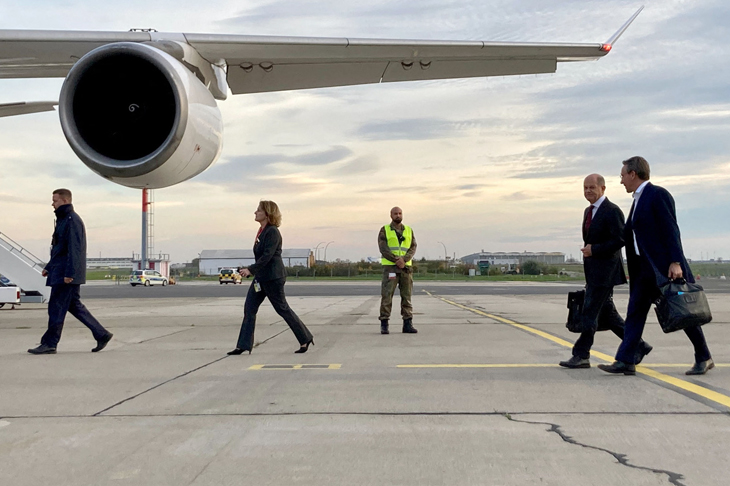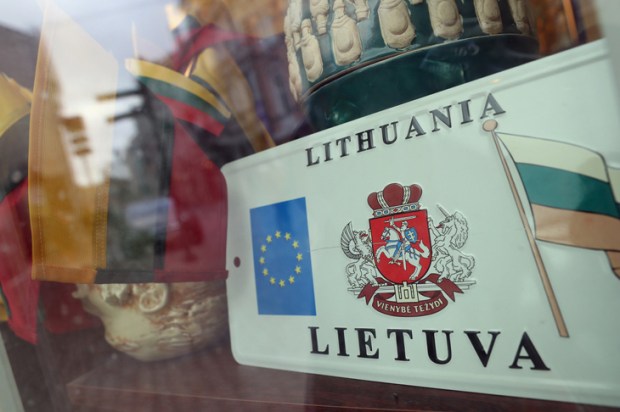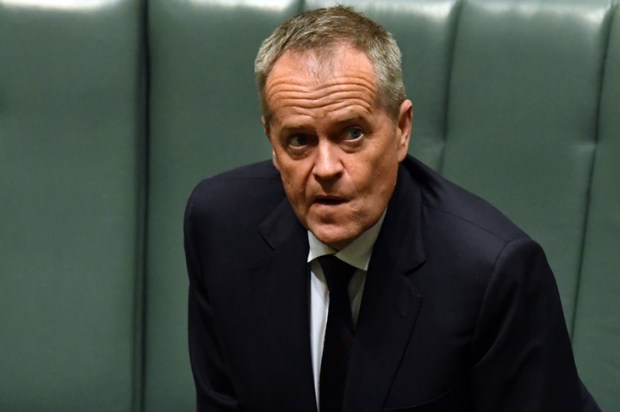The international media was awash with reports of the recent meeting between German Chancellor Olaf Scholz and Xi Jinping, the first such visit by a world leader to Beijing since the Chinese Communist Party’s 20th Congress. The much-anticipated meeting produced a flurry of coverage, especially about the conflict between Russia and Ukraine. According to Mr Scholz, both countries agreed Russia’s nuclear threats were ‘irresponsible and highly dangerous’. This is somewhat different to what the Chinese Foreign Ministry reported, stating that ‘under the current circumstances, the international community should… oppose the threat or use of nuclear weapons, advocate that nuclear weapons cannot be used and that nuclear wars must not be fought, and prevent a nuclear crisis in Eurasia’. Perhaps it was a mistake in translation, but Xi did no more than recite China’s position. Nor did he condemn Russia.
Scholz’s rushed visit to Beijing caused consternation before he departed Germany. President Macron had proposed a joint visit to signify a European approach to China, but Scholz decided to go alone. Prior to his visit, the Chancellor wrote ‘China remains an important business and trading partner for Germany and Europe – we don’t want to decouple from it’, a clear reference to the vast German investment in and trade with the Middle Kingdom. Scholz had approved a 24.9 per cent Chinese stake in a Hamburg container port despite widespread misgivings, a compromise forced by the cabinet on the initial proposal for a 35 per cent stake.
The Chancellor was under pressure to moderate Germany’s business-first approach to China. The Greens called for boosting exchanges with Taiwan and the nation’s finance minister and Free Democratic Party leader Christian Lindner said that the economic relationship with China should be based on reciprocity and equality: Berlin has to recognise that Beijing is not just a trade partner, ‘but also a systemic rival’ and must protect its infrastructure and intellectual property.
The German business community was split. The Federation of German Industries warned its members recently about the danger of relying on the goodwill of authoritarian leaders, urging a coordinated strategy to reduce dependency on China. The German Economic Institute described ongoing investment in China as ‘full steam ahead in the wrong direction’. Eight German industrialists, including three of the 12 who accompanied Scholz to Beijing, authored an article on their return in which they enthused about the ‘great potential of the Chinese market’. Representing leading companies such as BASF, Siemens, Merck and Bosch, they wrote ‘despite all the challenges facing China and with China, we are convinced that its fundamental growth momentum will remain. A withdrawal from China would cut us off from these opportunities’. The statement highlighted the compliant attitude of big German industry towards China. Having approved the Chinese stake in the Hamburg port, the German cabinet last week rejected an application for the sale of a computer chip company to the Swedish subsidiary of a Chinese firm. Economy Minister Robert Habeck said ‘there is a particular need to protect critical production areas’. In the Bundestag, all six parties agreed that Germany must become more independent, more sovereign and more self-confident towards China. The European parliament has agreed to a new trade instrument aimed at preventing takeovers of European companies by heavily subsidised foreign companies, notably Chinese.
The Beijing meeting produced little for the Germans other than allowing the use of their Covid-19 vaccines for expatriates residing in China – but world attention for Xi. The failure to allow the general use of overseas-produced vaccines – unless the technology is handed over to the CCP – reinforced Xi’s unwavering zero-Covid policy. Indeed, the German visitors were required to undertake three Covid tests and kept in a quarantine bubble for the duration of their short, 11-hour visit. Xi did not even shake hands with Scholz. The hurried visit demonstrated division amongst the leadership of both the German and European polity.
Chinese authorities subsequently axed a pre-recorded opening address by the European Council president to a major trade expo in Shanghai which criticised Russia’s illegal war in Ukraine and called for reduced trade dependency on China. Any criticism of China is met with hostility in Beijing. An investment agreement that Angela Merkel negotiated before leaving office in 2020 was shelved because of sanctions over human rights abuses in Xinjiang.
Other nations could learn a lesson from the Scholz visit. The CCP will welcome such calls gladly, as it projects Xi and China into the world spotlight, supporting their narrative about inevitable global dominance. Unless other world leaders have a concrete basis for Chinese reciprocity, such appointments are little more than a feel-good exercise in global vanity.
A week after the conclusion of the CCP’s 20th Congress, it emerged that Xi Jinping’s apparent domination of the party was less than initially reported. True, he stacked the politburo with hand-picked loyalists. Magnified photos of the incident involving former general-secretary Hu Jintao indicate the papers that Xi and his henchmen withheld from Hu were the list of candidates for office, adding weight to the theories that either Hu had been betrayed, or his removal was to avoid the embarrassment of a former leader publicly voting against Xi’s pre-ordained officials. Had Hu been allowed to read the document, he would have realised that Xi had staged a take-over of the politburo.
More significant was the revelation that the major changes to the party’s constitution that Xi had been campaigning for were rejected. An article on a Chinese government website by writers for the Xinhua News Agency reported that critical to selection on the new politburo was the candidate’s support for the ‘two establishes’, namely, Xi at the core of the party, and the guiding position of Xi thought. In the lead-up to the Congress, banners calling for the ‘two establishes’ were displayed in Beijing. The Congress even passed a resolution supporting the proposal, but the provisions were not included in the constitution. Missing from the final document were words ‘establishing’ Xi’s core position in the party. Nor did the final document abbreviate the long-winded ‘Xi Jinping Thought on Socialism with Chinese Characteristics for a New Era’ to ‘Xi Jinping Thought’ as sought by Xi. The change would have elevated his ideology to the level of Mao Zedong, ahead of ‘Deng Xiaoping theory’. Nor did Xi’s hoped for title of ‘people’s leader’ eventuate. Hu Jintao may have been dragged from the congress before the vote on constitutional amendments, but the party elders maintained Deng’s 1982 rejection of ‘any form of personality cult’. Had Xi been accorded the title, it would have been a step towards becoming ‘party chairman’ and leader for life. To outsiders, it may seem an inconsequential matter, but for Chinese who recall the final years of the Mao era, it was of upmost importance. Xi may be surrounded by loyalists, but there remain many opposed to his aspirations.
Got something to add? Join the discussion and comment below.
Get 10 issues for just $10
Subscribe to The Spectator Australia today for the next 10 magazine issues, plus full online access, for just $10.
You might disagree with half of it, but you’ll enjoy reading all of it. Try your first month for free, then just $2 a week for the remainder of your first year.














Comments
Don't miss out
Join the conversation with other Spectator Australia readers. Subscribe to leave a comment.
SUBSCRIBEAlready a subscriber? Log in